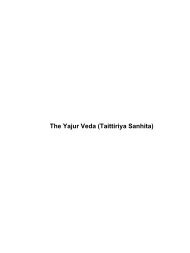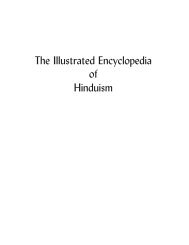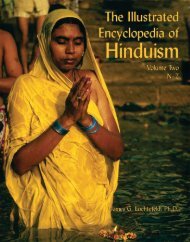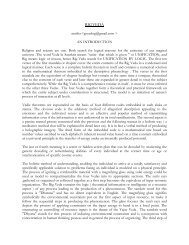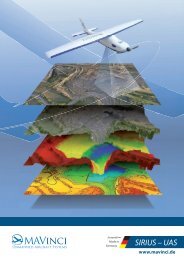A Concise Encyclopedia of Hinduism Klaus K Klostermaie
You also want an ePaper? Increase the reach of your titles
YUMPU automatically turns print PDFs into web optimized ePapers that Google loves.
173 Ÿloka-värtika<br />
abode: the ‘Golden temple’ is a Ÿiva<br />
sanctuary. ŸA¢KARA (2), the founder <strong>of</strong><br />
Advaita Vedänta, was a Ÿaivite and so<br />
were many luminaries <strong>of</strong> India. Ÿiva is<br />
also known as Maheÿvara (‘Great<br />
God’), Gaögädhära (‘Bearer <strong>of</strong> the<br />
Gaögä’), Iÿäna (‘Ruler’) and Viÿvanätha<br />
(‘Lord <strong>of</strong> the Universe’), among other<br />
names. Among the philosophical<br />
schools based on Ÿaivism are ŸAIVA<br />
SIDDHÄNTA and KASHMIR ŸAIVISM.<br />
Ÿaivism is a vigorous and active Hindu<br />
tradition today.<br />
Ÿiväji (1627–80)<br />
The son <strong>of</strong> Shahji Bonsle, a PESHWA, he<br />
rose up against the Mogul emperor<br />
Aurangzeb, and became the founder <strong>of</strong><br />
the last great Hindu empire. From his<br />
capital city Pune he conquered large<br />
tracts <strong>of</strong> north-western India and the<br />
Deccan. He forced the Mogul emperor<br />
to conclude a treaty conceding his<br />
suzerainty over the conquered land. He<br />
was just and took care <strong>of</strong> the weaker<br />
sections <strong>of</strong> society, especially <strong>of</strong> women,<br />
and was much admired and loved by his<br />
people. He was very respectful towards<br />
brahmins, but as he came from a ŸÜDRA<br />
background they denied him coronation<br />
according to Vedic rites. In later centuries<br />
he acquired almost legendary status<br />
and a Mahratta nationalist political<br />
party established itself in 1962 under<br />
the name <strong>of</strong> ‘Siv sena’, Ÿivajï’s army. It<br />
has become the ruling party in<br />
Mahärä•flra and is becoming an all-<br />
India party now.<br />
Ÿivaliöga<br />
See LI¢GA (3).<br />
Ÿivänanda, Swami<br />
(1887–1963)<br />
Founder <strong>of</strong> Ÿivänanda Ashram and<br />
Yoga Vedänta Forest Academy in<br />
Hø•ikeÿa. Born into the illustrious family<br />
<strong>of</strong> Appaya Dik•ita in South India, he<br />
studied medicine and practised as a doctor<br />
for many years in Malaya before<br />
becoming a SAMNYÄSI in Hø•ikeÿa in<br />
1924. As a medical doctor he selflessly<br />
attended to the poorest and most downtrodden,<br />
and continued to do so after<br />
founding the Ÿivänanda Ashram in<br />
1932 and the Divine Life Society in<br />
1936. In 1948 he established the Yoga<br />
Vedänta Forest Academy. He continued<br />
taking an interest in medicine, especially<br />
in AYURVEDA, and opened a dispensary<br />
and clinic. He also gave discourses<br />
on spiritual matters and began publishing<br />
pamphlets and books. The Ÿivänanda<br />
Ashram has an international following<br />
and both in letter and spirit promotes<br />
universalism in religion. It is one <strong>of</strong> the<br />
major establishments in Hø•ikeÿa and<br />
well known all over India. The activities<br />
<strong>of</strong> the ashram have been continued and<br />
broadened by Ÿivänanda’s successor,<br />
Swami Cidänanda (born 1916).<br />
ÿivatva<br />
(‘Ÿiva-ness’, Ÿiva nature)<br />
ŸAIVA SIDDHÄNTA teaches that the true<br />
nature <strong>of</strong> all humans is ÿivatva, Ÿiva<br />
nature, which is hidden and curtailed<br />
through sin. When sin is removed, the<br />
Ÿiva nature reveals itself, bringing truth<br />
and happiness.<br />
slavery<br />
Slavery did exist in ancient India, and<br />
under the form <strong>of</strong> indentured labour it<br />
continued into the 20th century.<br />
ÿloka<br />
(‘couplet’)<br />
The smallest literary unit <strong>of</strong> the EPICS.<br />
Ÿloka-värtika<br />
Celebrated work by Kumärila Bhaflfla <strong>of</strong><br />
the MÏMÄßSÄ school, a commentary to<br />
the first part <strong>of</strong> the Mïmäƒsä Sütras,<br />
containing critiques especially <strong>of</strong> various<br />
Buddhist schools.




